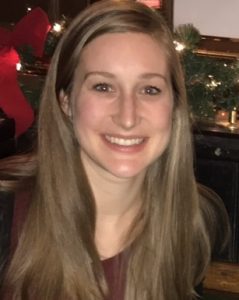 We recognized University of North Florida for offering one of the 32 Best Master’s in Education Programs with an ABA Emphasis, adding them to our list of top recommendations for students in the area.
We recognized University of North Florida for offering one of the 32 Best Master’s in Education Programs with an ABA Emphasis, adding them to our list of top recommendations for students in the area.
We were excited to hear from Cynthia Livingston, Ph.D., BCBA, Lead Professor in the Applied Behavior Analysis programs and Gerry Giordano, Ph.D., Program Director, Exceptional Student Education, faculty members at University of North Florida who took the time to answer a few questions about how the school works to create a great student experience that helps prepare graduates for a career in applied behavior analysis.
University of North Florida Programs:
The University offers two programs:
- Graduate Certificate in Applied Behavior Analysis
- Master of Education in Disability Services, specialization: Applied Behavior Analysis

Professor/Faculty Name: Cynthia Livingston, Ph.D., BCBA, Lead Professor in the Applied Behavior Analysis programs
Tell us about the types of students you see come through your program. Are you seeing more non-traditional students and career changers coming from other fields?
- The programs currently had 20+ students in past fall.
- Several of the students had completed undergraduate degrees in psychology and then immediately commenced their ABA program.
- One student had completed her undergraduate degree in special education and immediate commenced the program.
- Ten of the students had completed their undergraduate degrees in psychology, worked as Registered Behavior Technicians at private clinics, and then decided to become BCBAs.
- The remainder of the student are mid-career persons. Some of these are nontraditional students who have worked in business; the rest have worked in education as teachers. They had learned about ABA from personally interacting with a BCBA or from a colleague who had interacted with one.
What areas of practice are you seeing graduates going into? Do they tend to find jobs in the local school districts or more often join private practices?
Over the past several years, more than 90 percent of our students have taken jobs at private clinics. Most of the others are working in the public schools. One of our graduates is working in a hospital/rehabilitation center. None are employed in industry.
What are some of the things you love most about the ABA program at your university – the kind of things you’d like future students to know about as they consider their options?
The program is taught by highly qualified residential faculty and adjuncts. The adjuncts are all wording as fulltime BCBAs in private clinics. They bring a practical focus to the courses that they teach and complement the instruction by our resident faculty.
Over the past five years, we have had a 100 percent placement rate for our graduates. The majority of them have multiple employment options after earning board cortication.
What do you feel are the most pressing issues in ABA today, and how does the program at your school prepare graduates to address these issues?
The program has five emphases, each of which corresponds to a pressing issue in the field.
- Graduate are placed at practicum sites in which they have to interact with a broad range of persons: family members, teachers, professionals from other disciplines. They develop the skills to make highly specialized techniques accessible to all of these team members.
- Ethical conduct is a foundation for the program. Although ethical conduct is the focal point of a dedicated course on that topic, it permeates every course in the program, especially the practicum courses.
- Jacksonville is a highly diverse community. Graduates are continually challenged to adapt strategies so that they will be highly effective with the minority groups they will encounter in schools, clinics, hospitals, and industry.
- Most of the graduates of the program take jobs at private clinics. However, over their careers, they will have opportunities to work in other settings. Our program ensures that they are informed about and prepared for career options in education, health, and industry/business.
- The courses equip students with interventions that are research-verified and that have been used with success by clinicians. However, they continually underscore the theoretical basis for these interventions as well.
The MEd in Special Education—ABA Concentration contains the BACB Verified Course Sequence needed to become a BCBA. Is there a way for non-degree seeking students to take only the course sequence so as to become eligible for certification?
Yes…The University offers two programs, one leading to a degree and the other to certification:
- Graduate Certificate in Applied Behavior Analysis
- Master of Education in Disability Services, specialization: Applied Behavior Analysis
How many supervised experience hours can ABA students earn through the Intensive Practicum course?
The Intensive Practicum course, which currently is being revised, will not be offered during the fall semester. During that semester, Dr. Livingston will meet with community partners at currently approved practicum sites as well as prospective sites. She and the community partners will collaborate to designate the number of hours that the ABA students can earn.
What kind of course delivery format options are available with the Graduate Certificate in ABA program?
Some of the courses are face-to-face, some are online, and some are a hybrid of these two formats.
Please feel free to add anything else you would like potential students to know about your program and that would be good for them to consider before choosing a program.
The goal of the program is to prepare individuals who are not only well-informed, ethical, and skilled, but who will pass the exam required for board certification. The instructors continually monitor whether candidates will be prepared for that exam. They then take steps to ensure that they meet that professional goal.
Check out our full interview series here to see what other professors and faculty are saying about their ABA programs.





